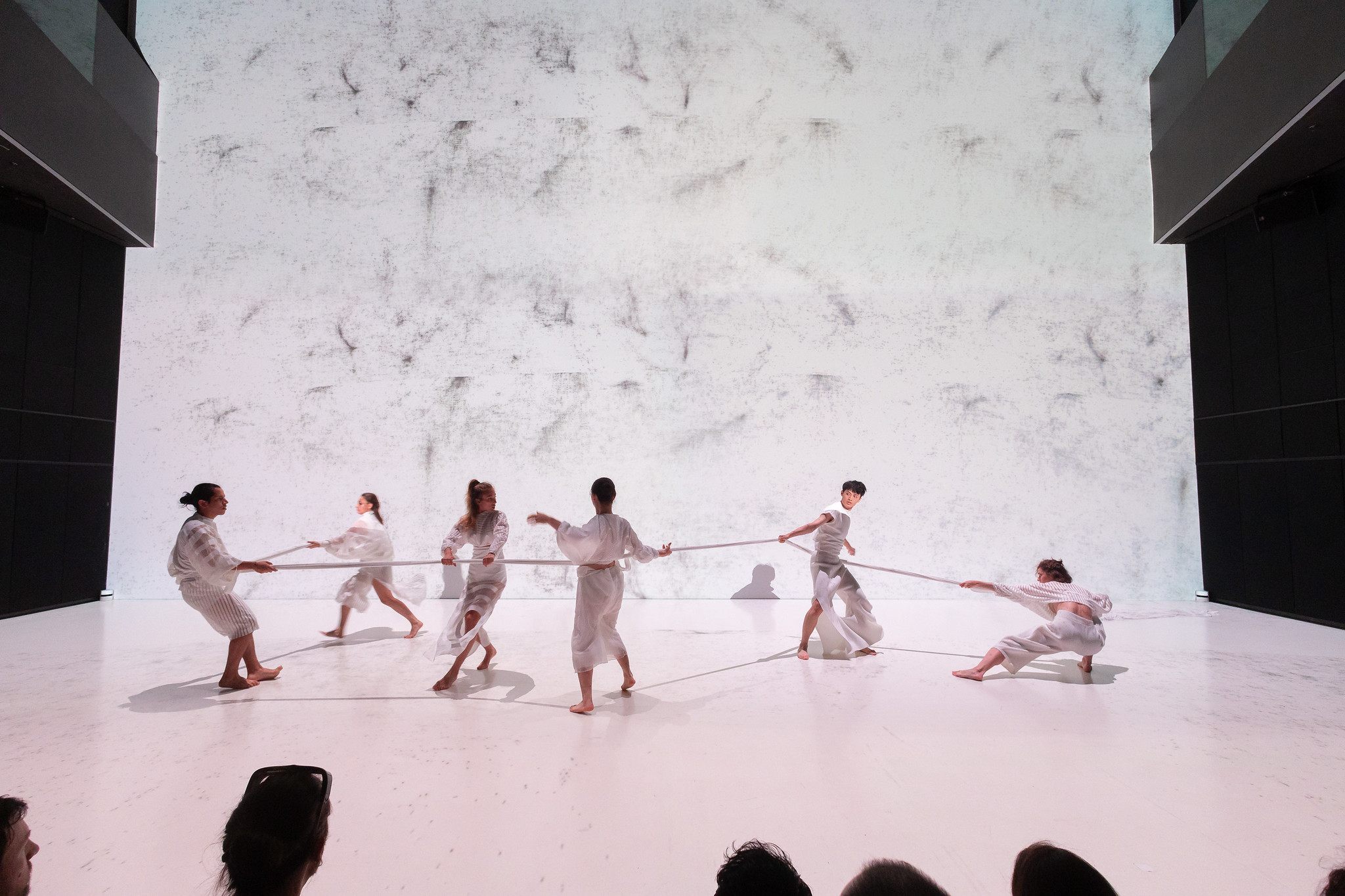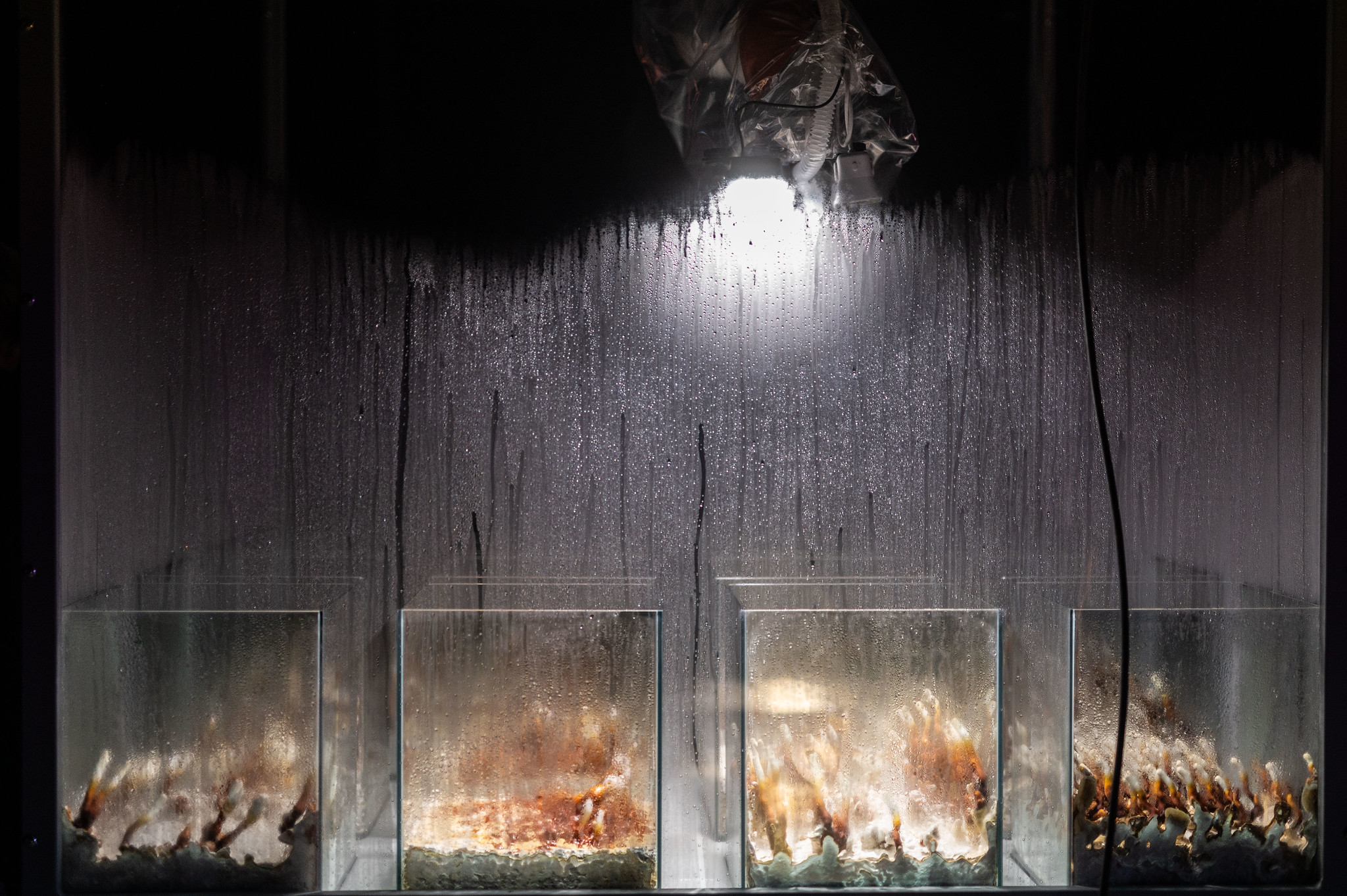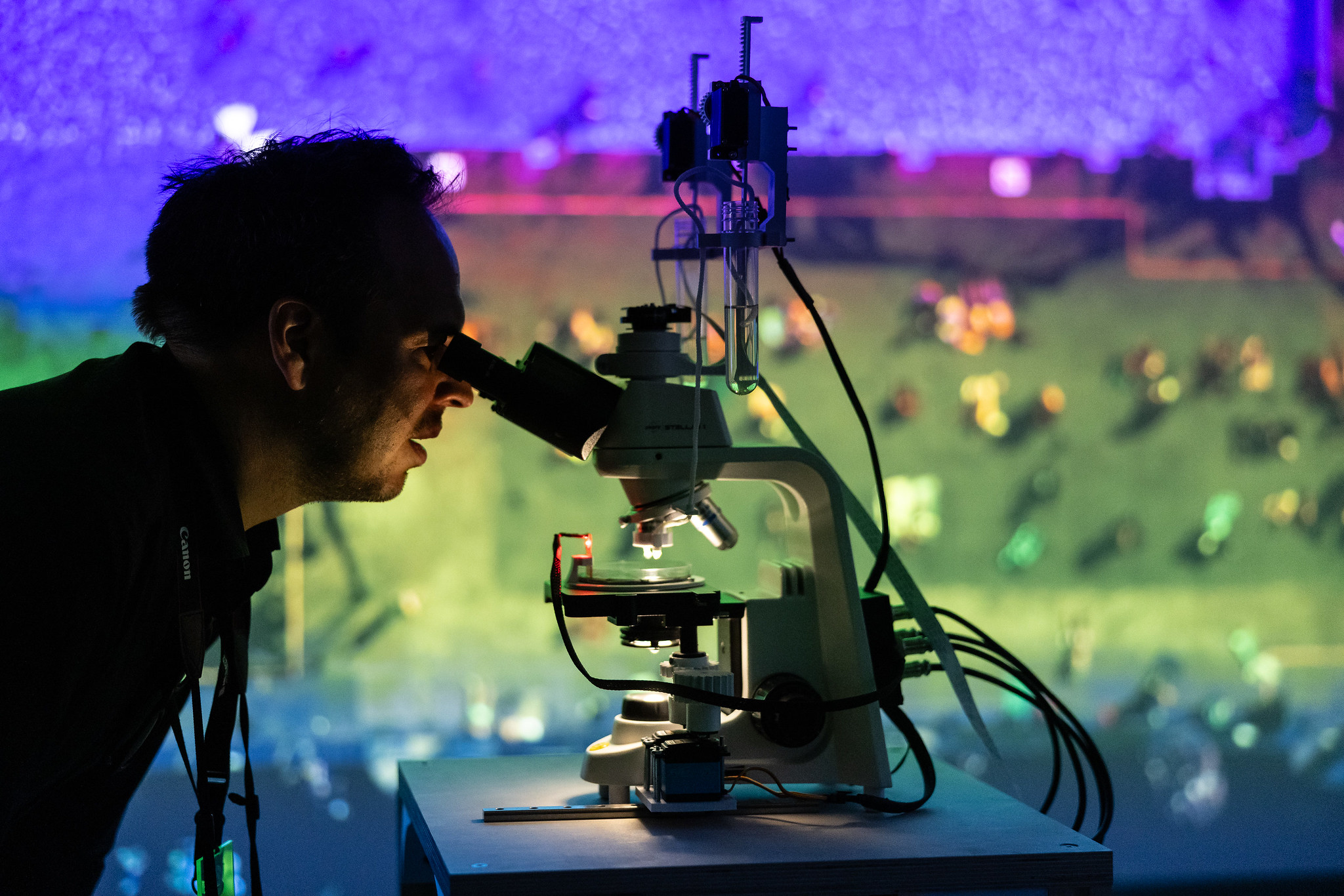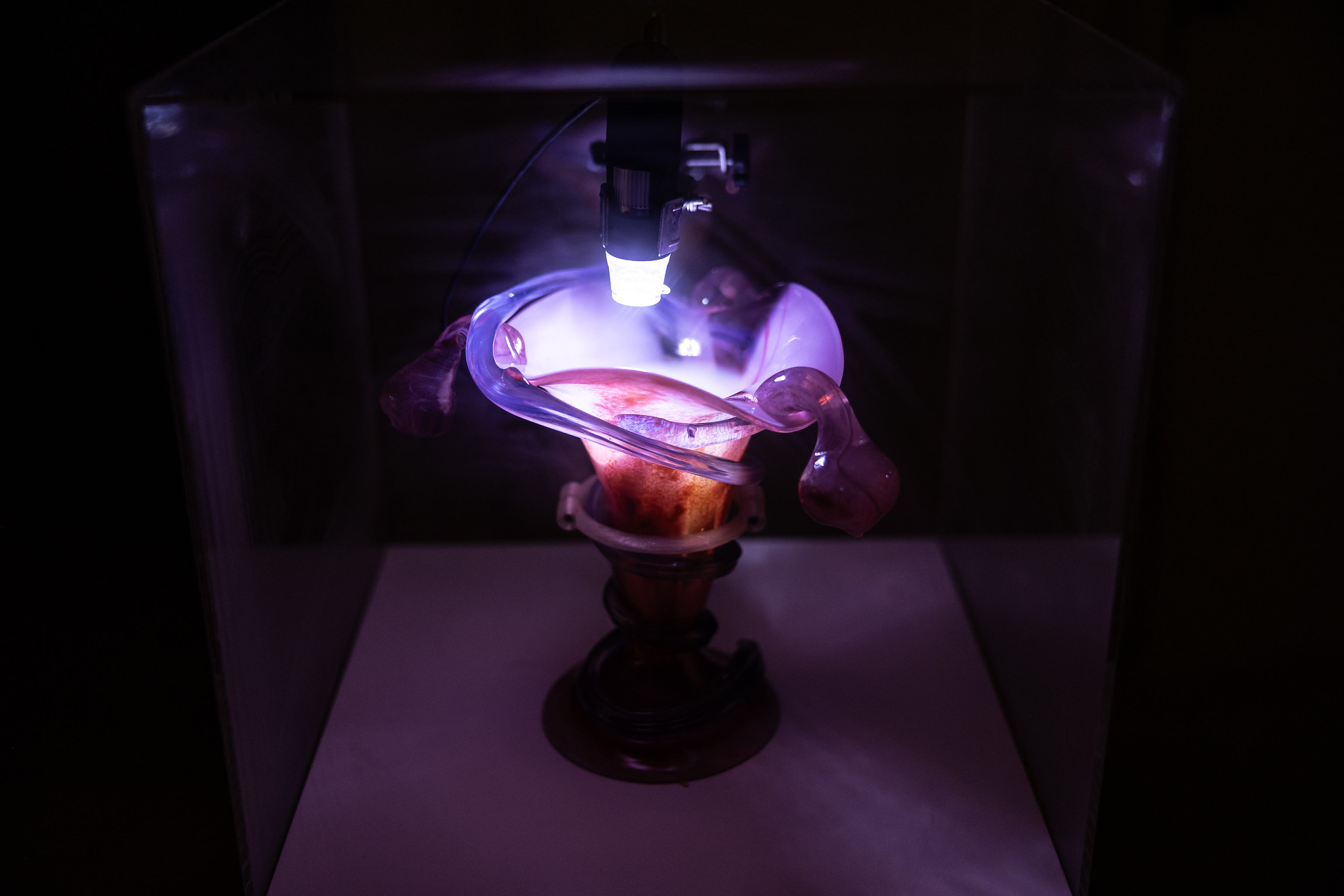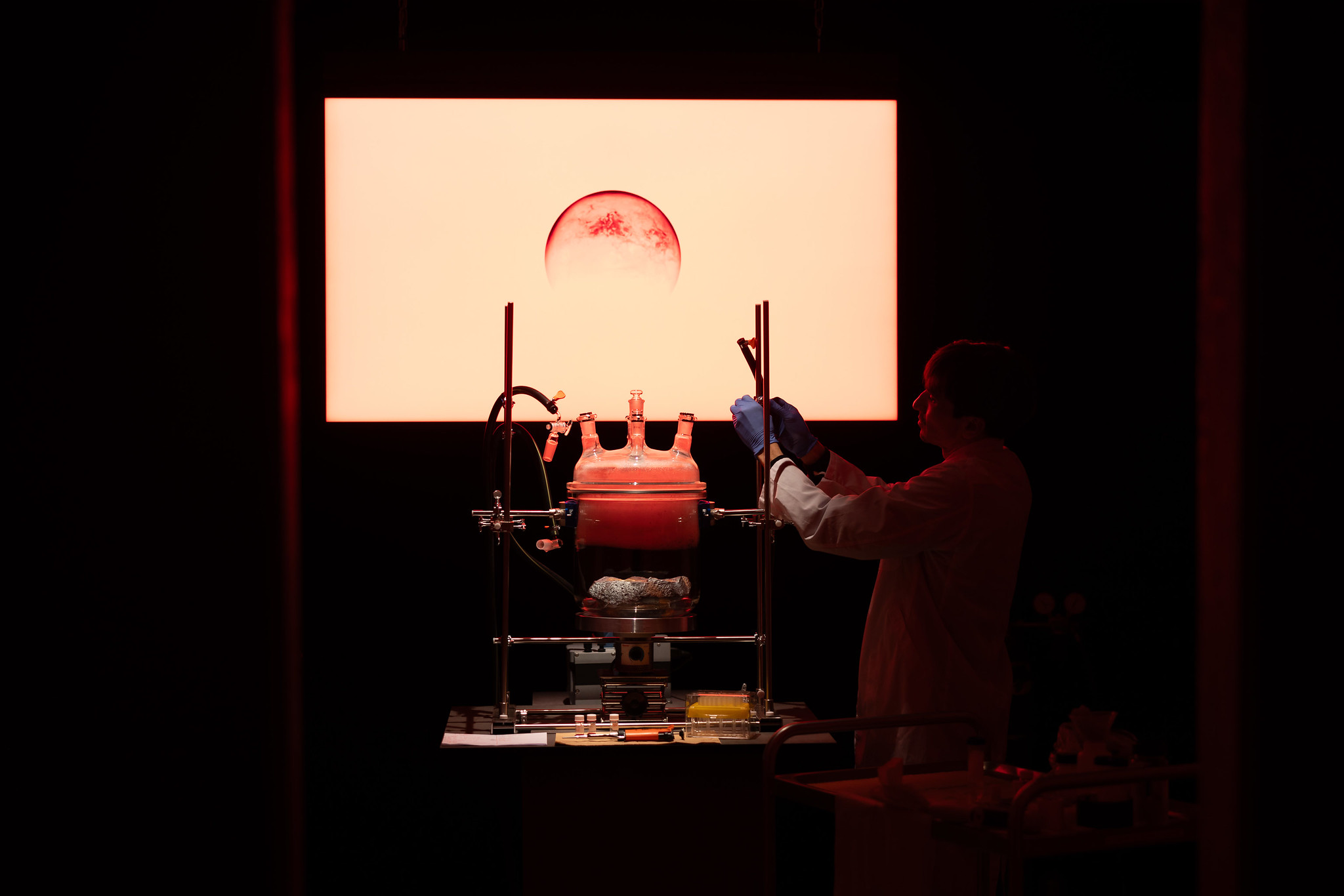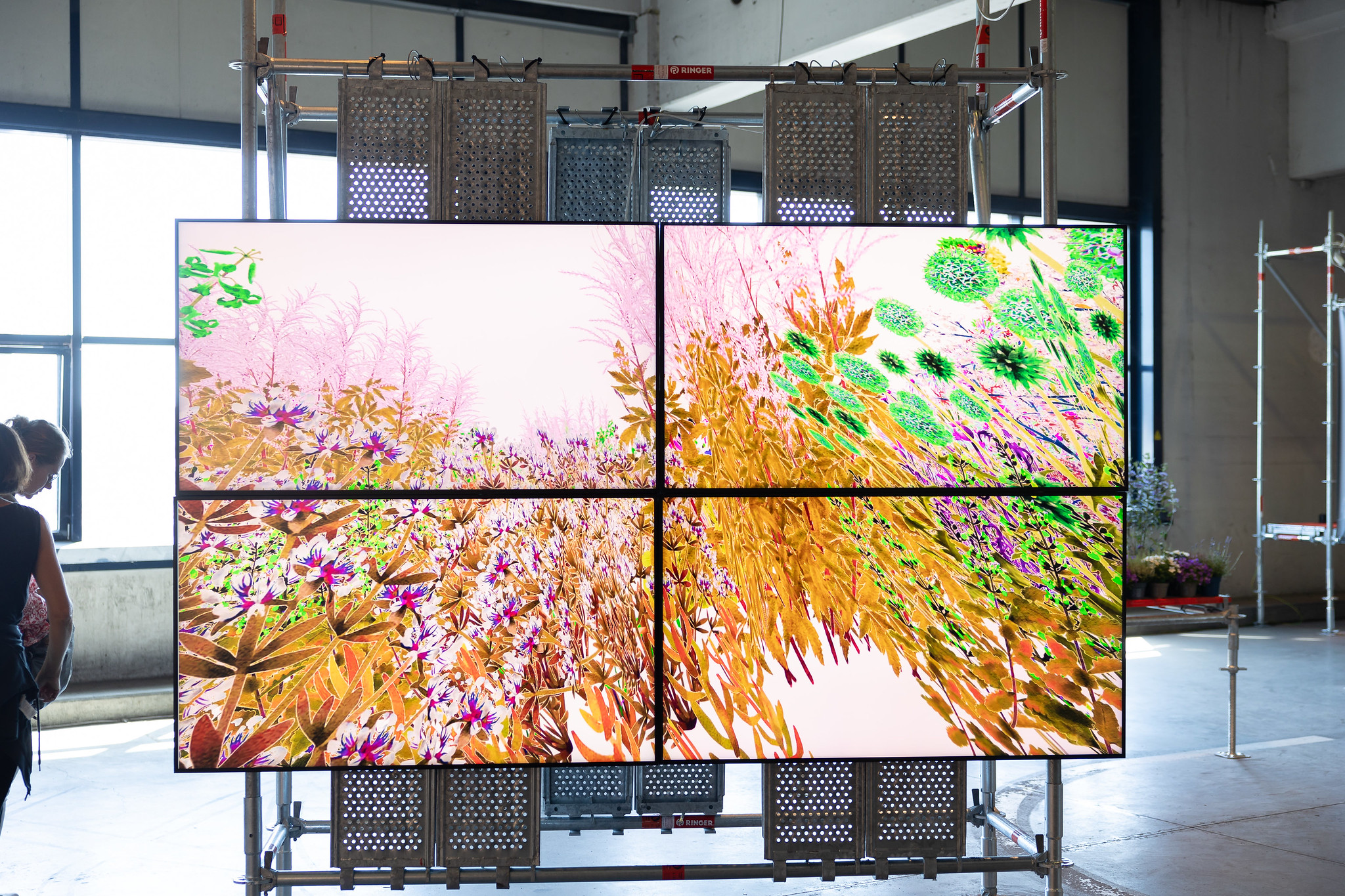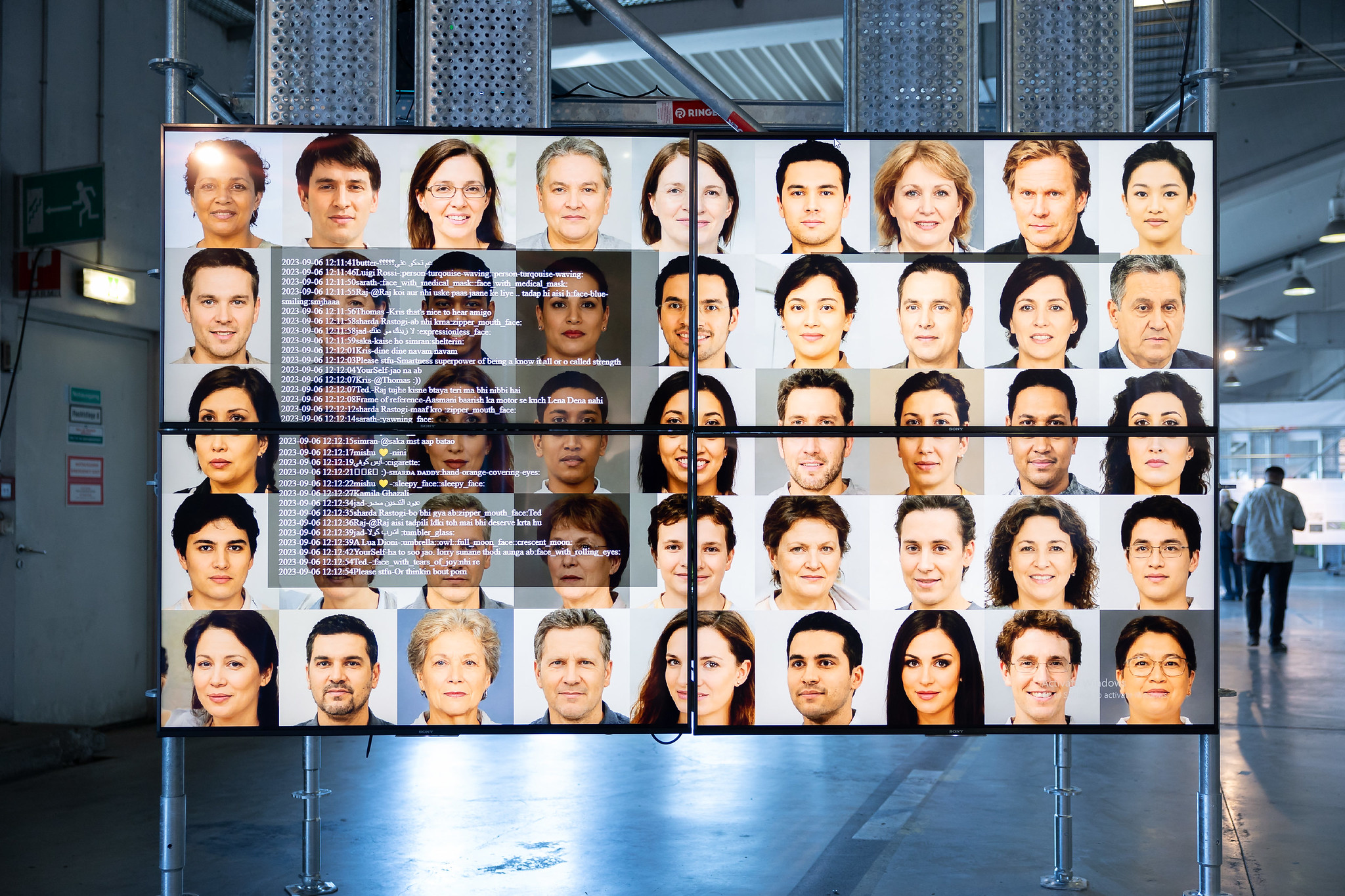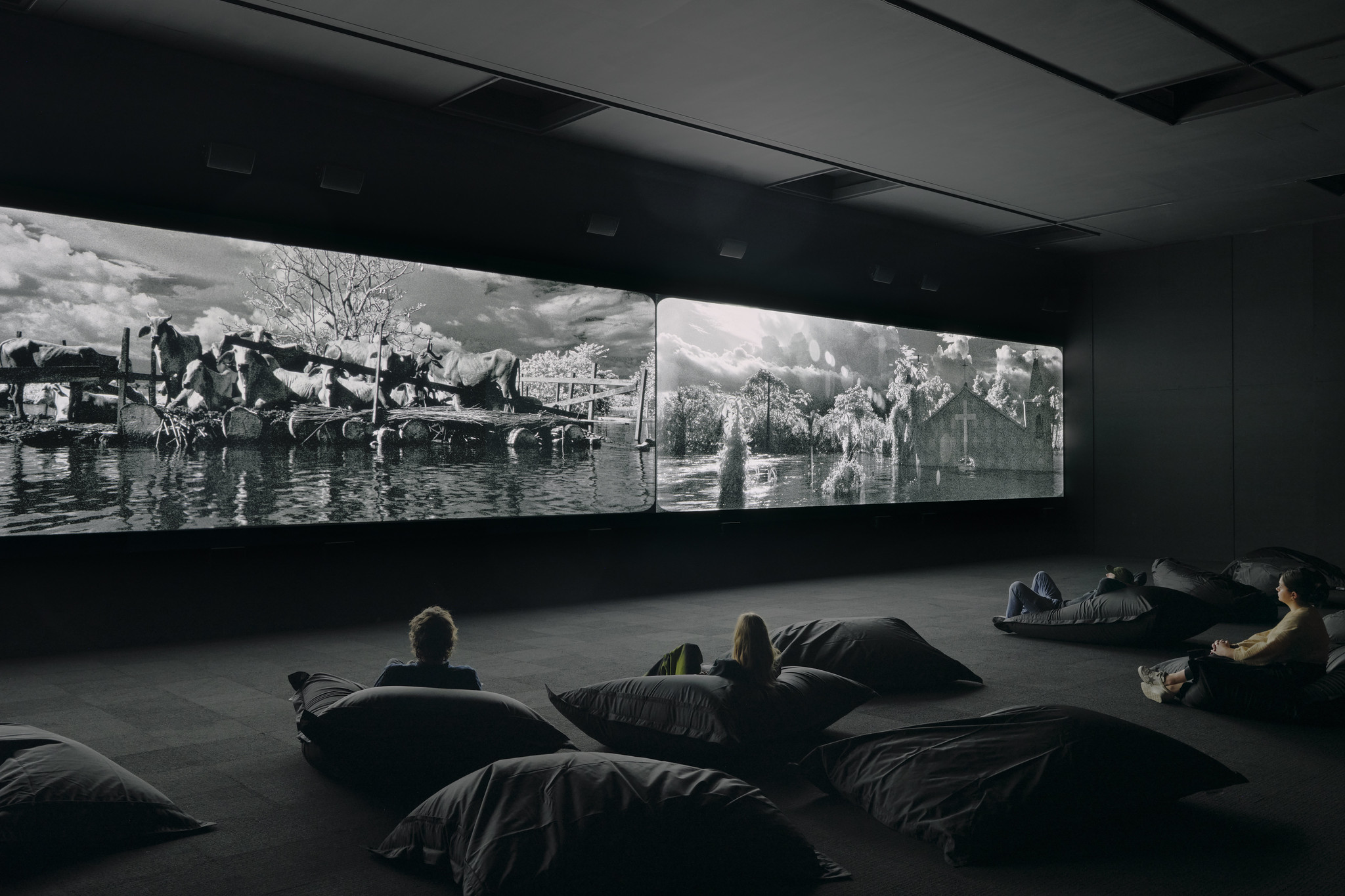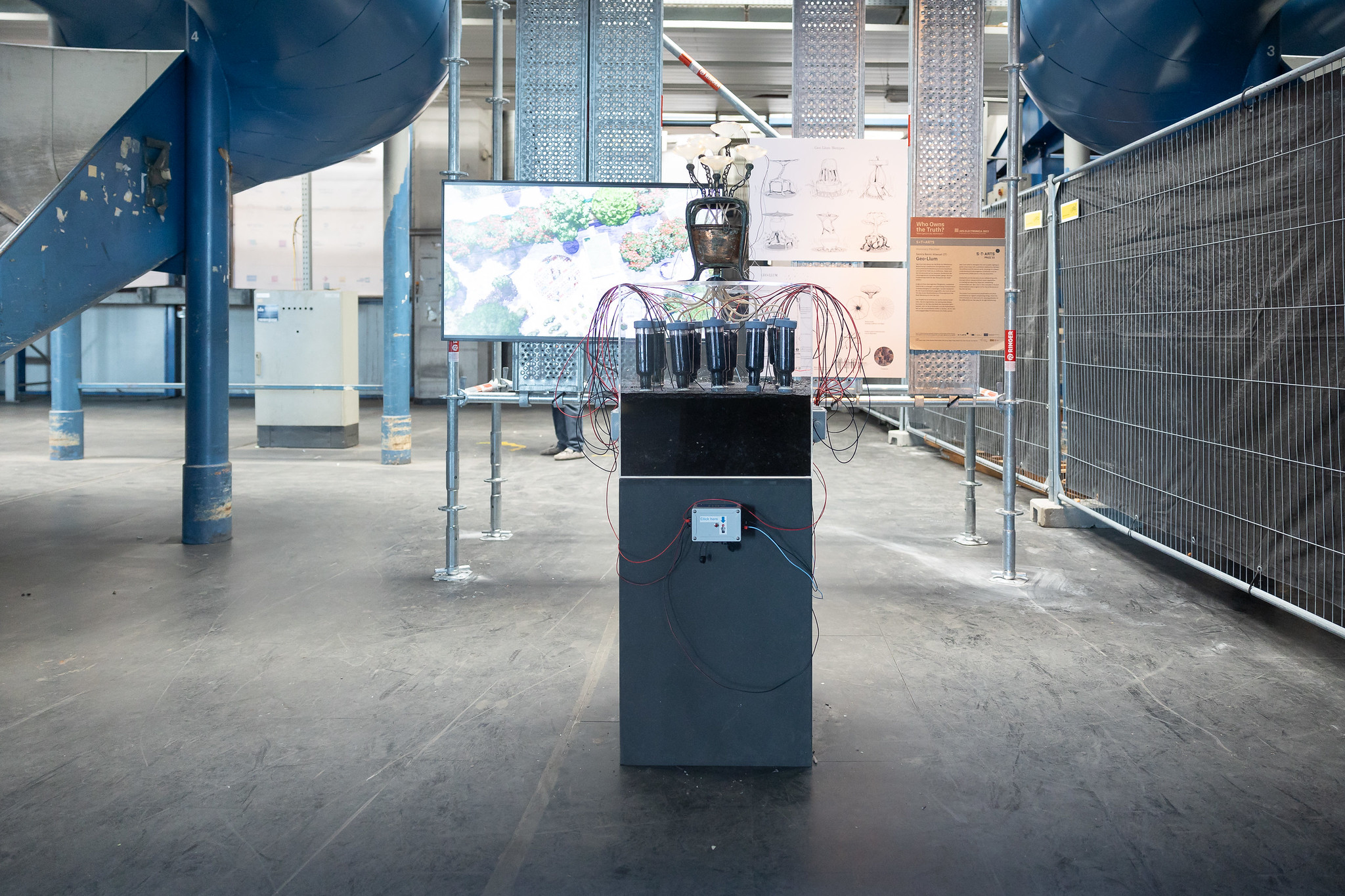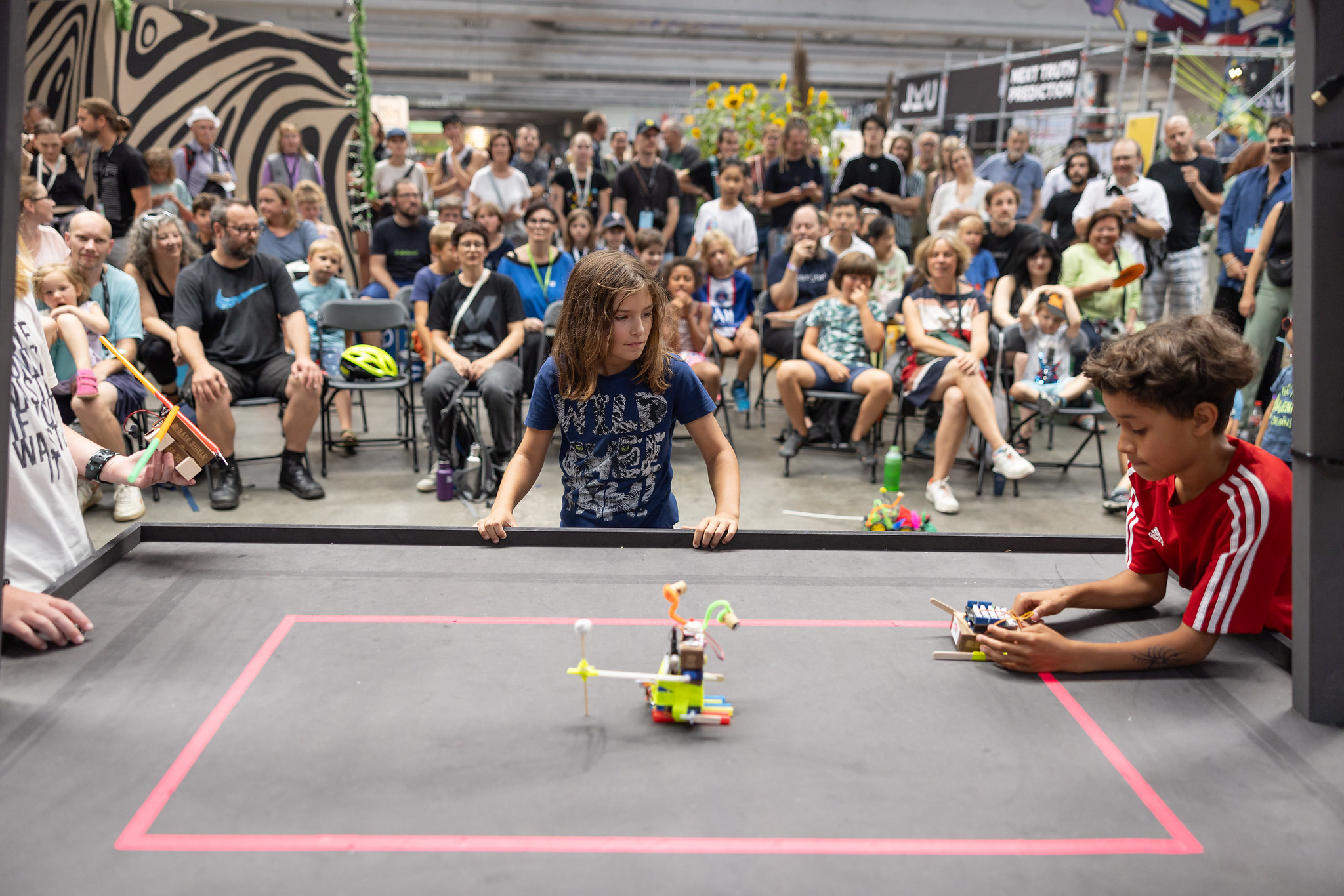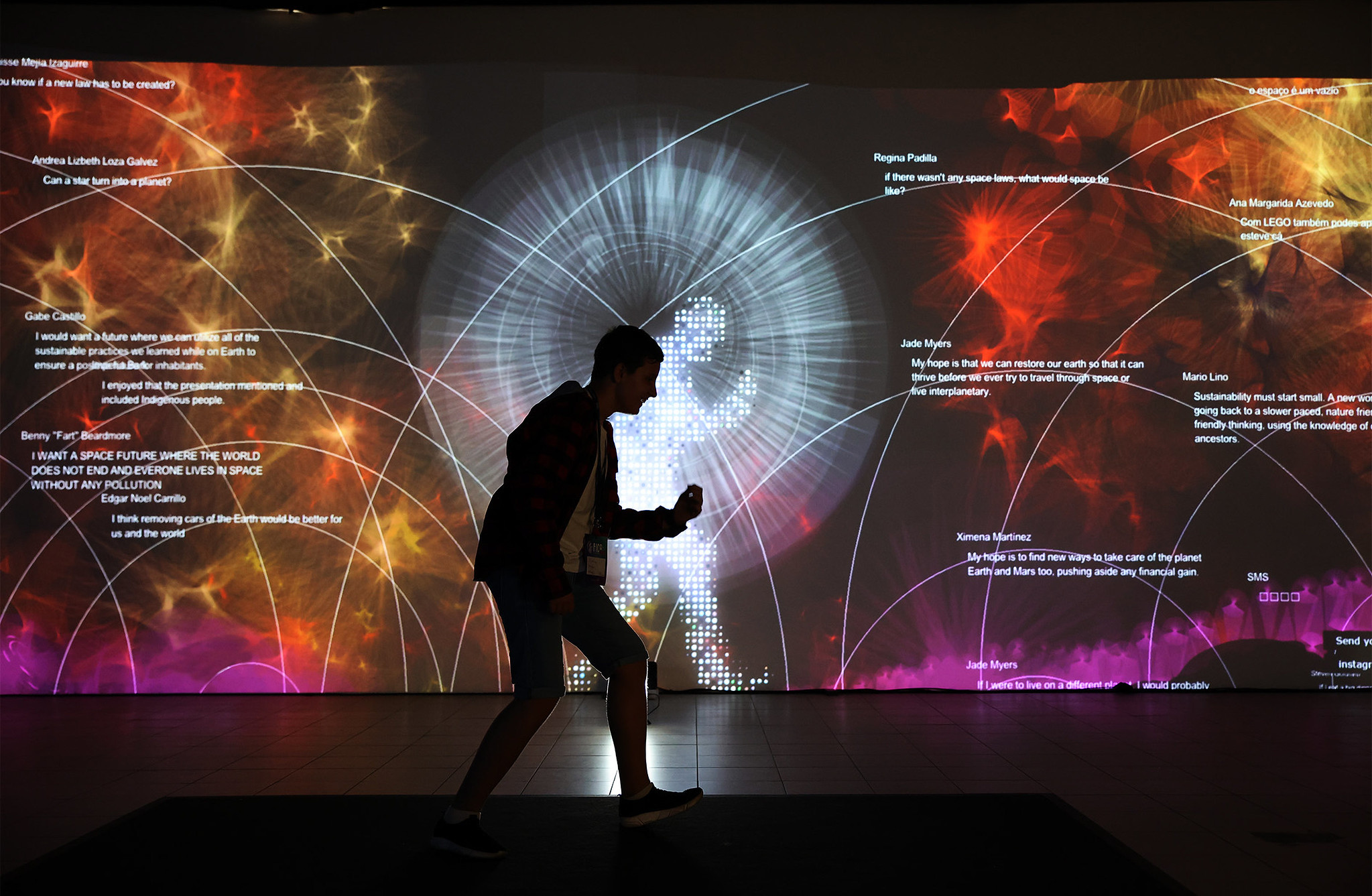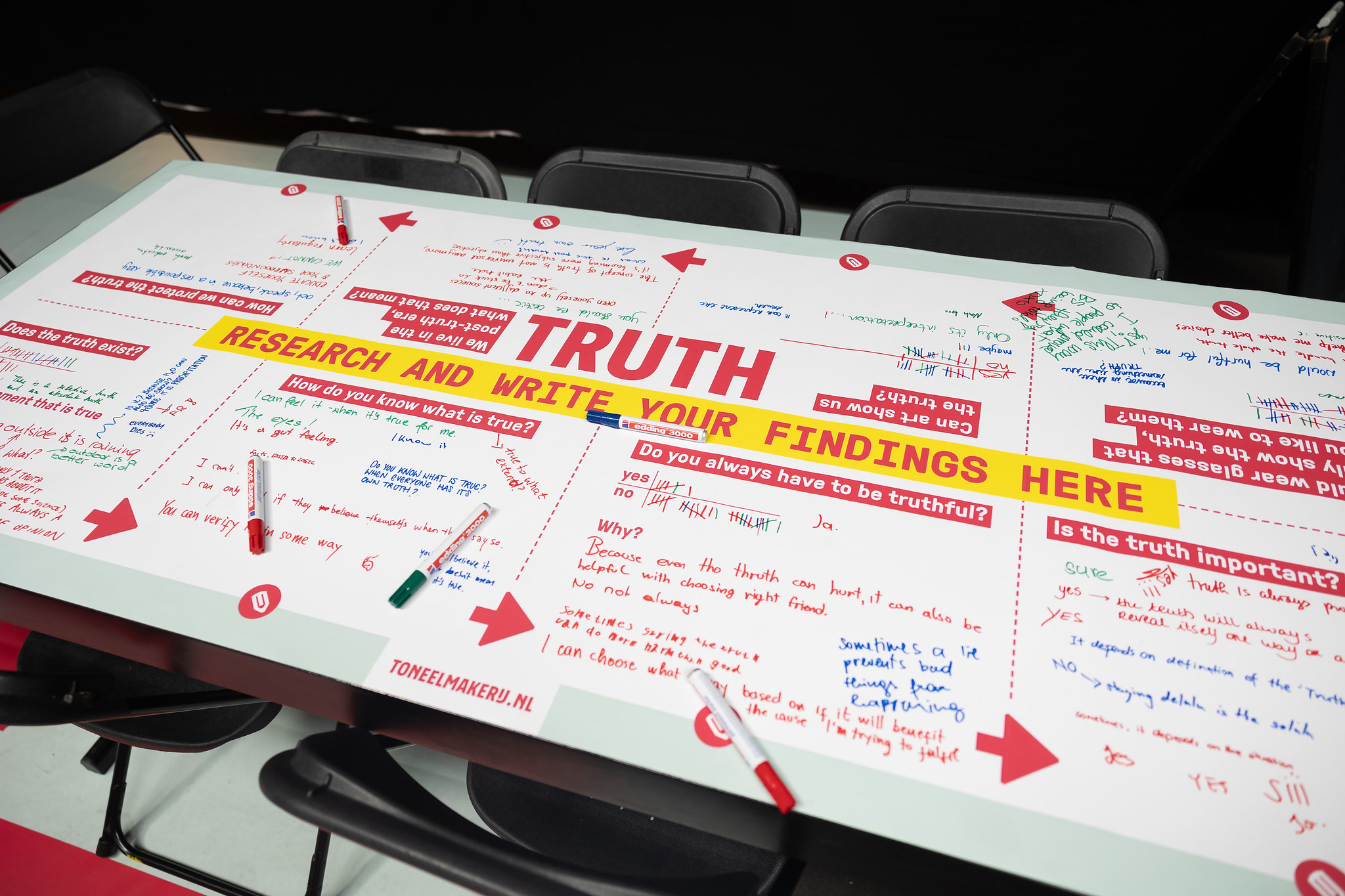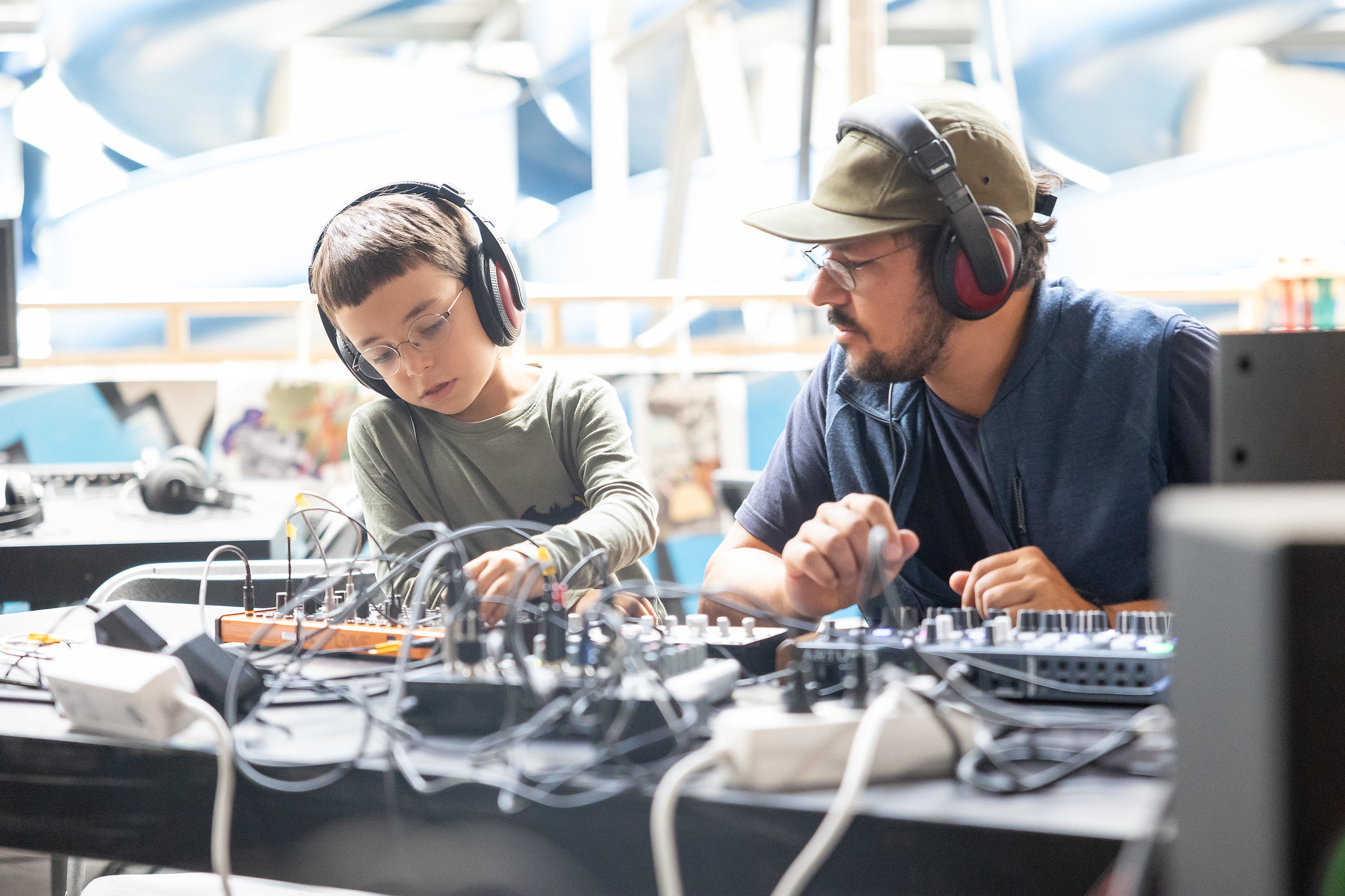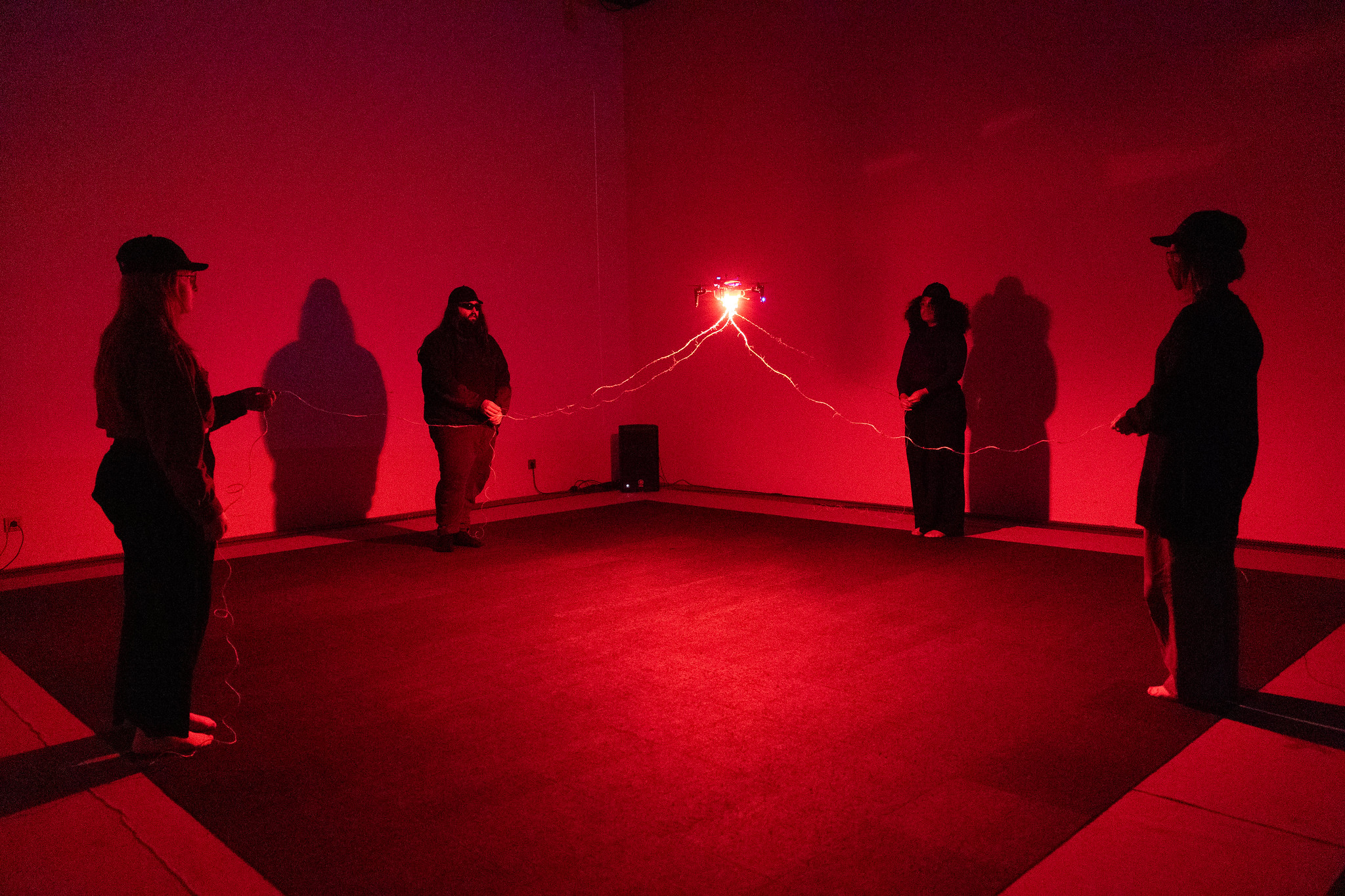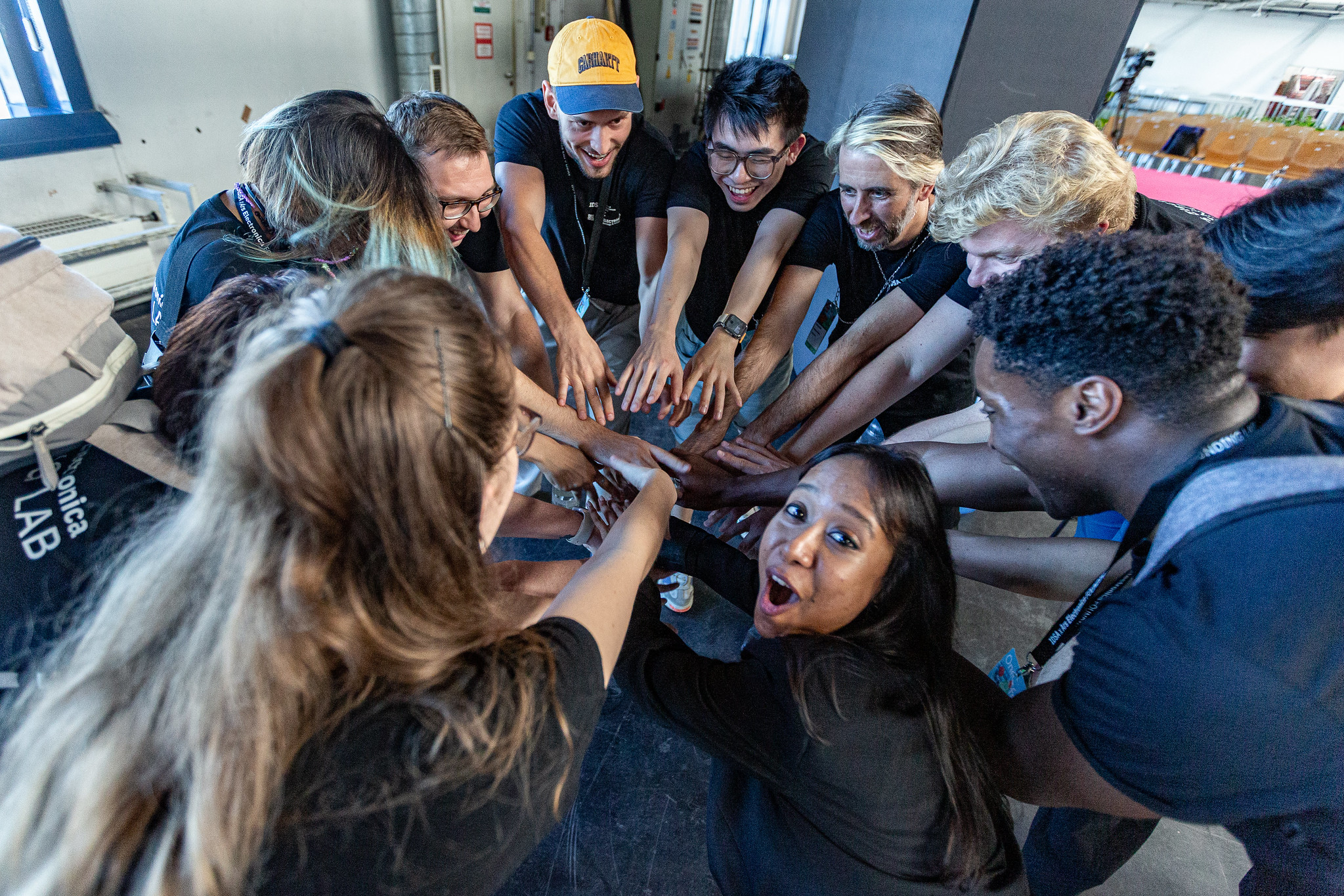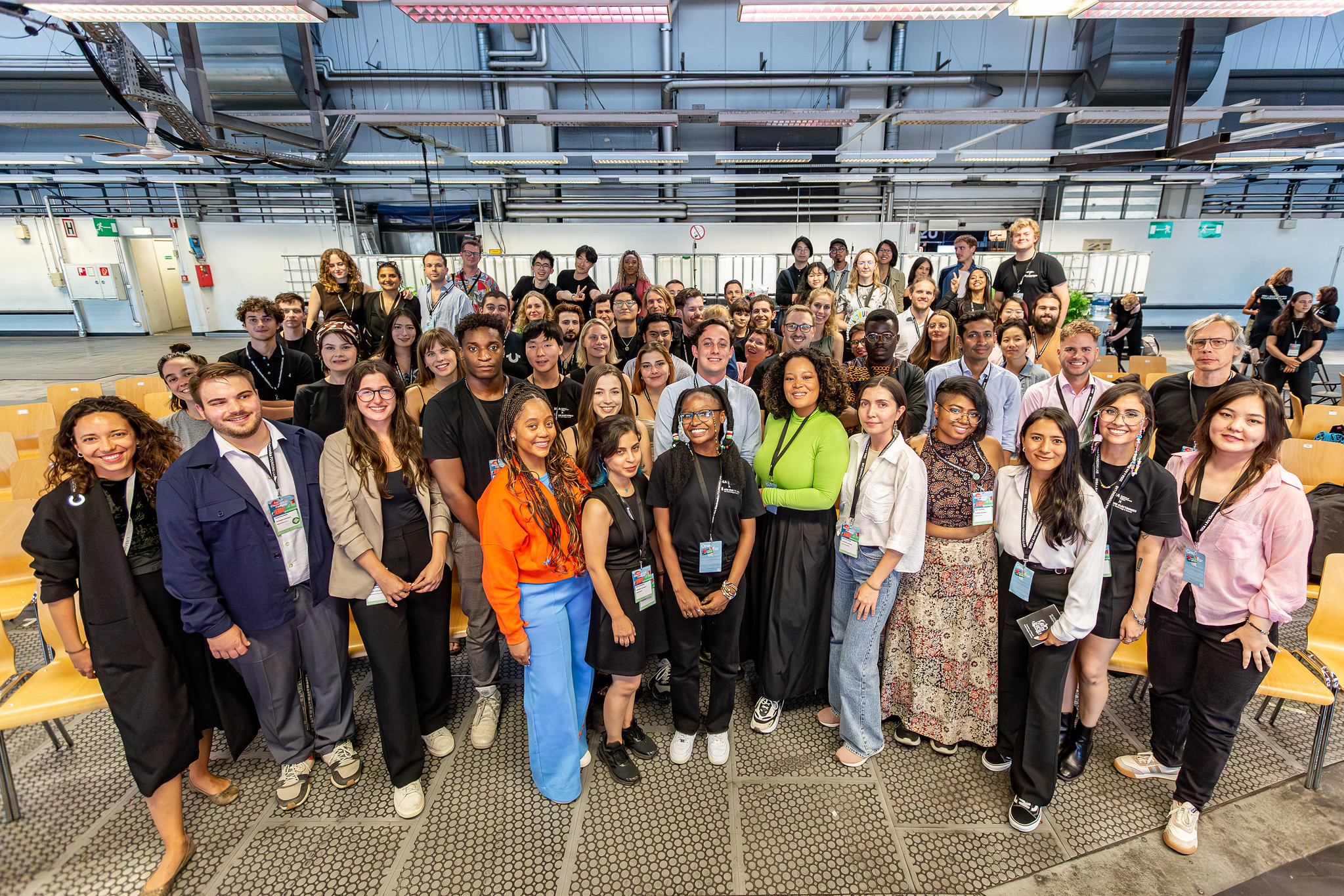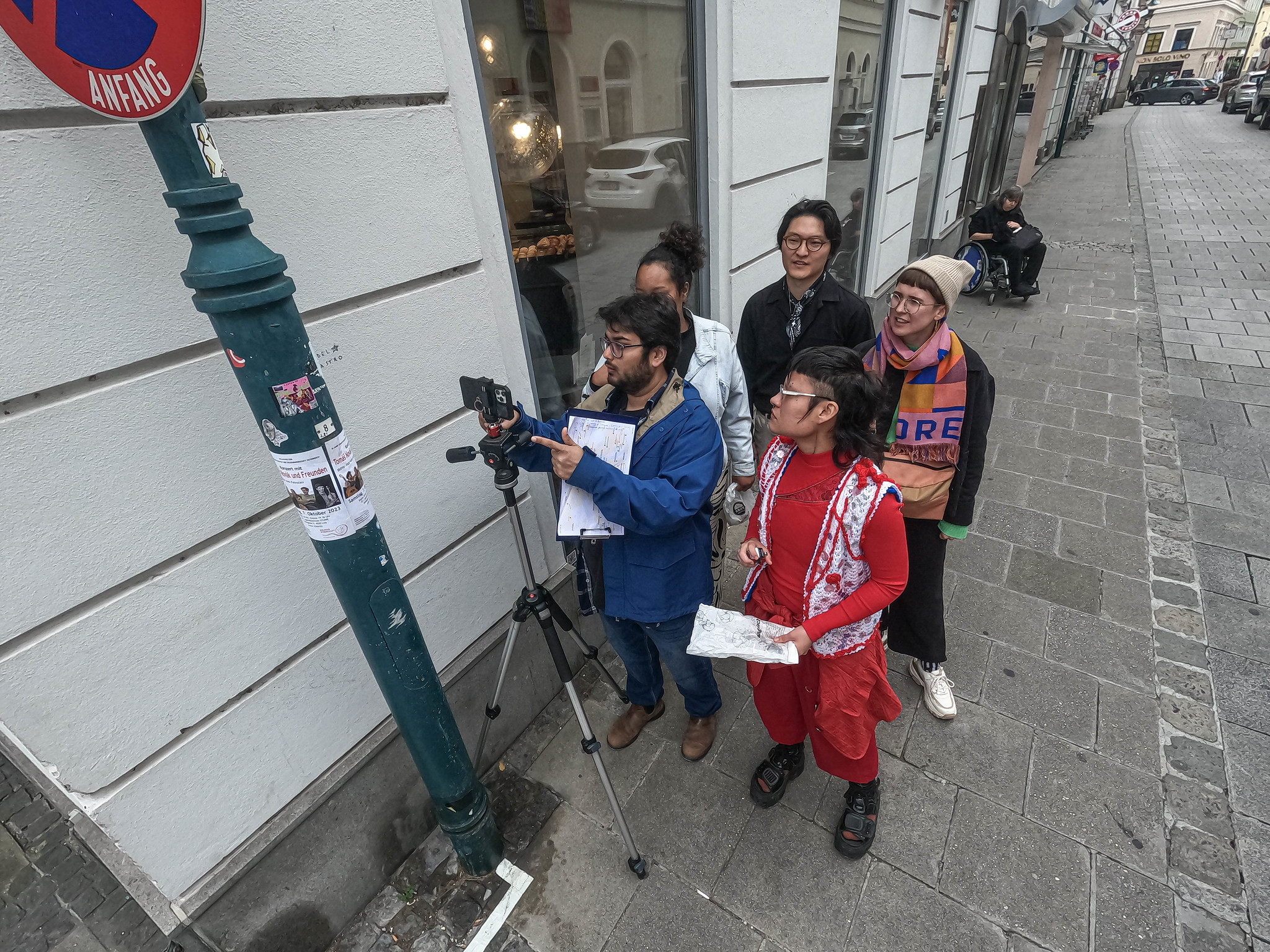As the year draws to a close, we look back on twelve months of intense social experiences, challenges, inspiring moments and exciting projects.
Ars Electronica’s corporate philosophy is manifested in the firm conviction that the fusion of art, technology and society points the way to the future. Understanding “society” as a group of individuals in social interaction, Ars Electronica seeks to explore current developments together with members of this society – artists, scientists, activists – and to speculate about their possible effects in the future.
During the past year, we once again intensively explored the question of how we can define our role in society and actively participated in the discourse. Our central concern? Putting people’s needs and perspectives first.
In search of a common truth
The world’s largest media art festival in 2023 was dedicated to a theme closely linked to current challenges such as fake news, artificial intelligence and the question of the authority of interpretation in today’s society: Truth. Under the title “Who Owns the Truth”, artists, scientists, designers and activists from all over the world were invited to Linz to explore this question in depth.
The festival did not focus on the search for objective truth, but rather on who in our society has the authority to interpret truth and how it is communicated. Themes such as property, sovereignty, digitalization and artificial intelligence, which are at the center of our times, were questioned, addressed and made accessible to a broad public in the form of various exhibitions, lectures, performances and discussion panels. As is well known, the Ars Electronica Festival does not merely provide information – visitors are encouraged to actively engage with the problems and challenges of our time and to become aware of their own responsibility.
The themes of truth and society also took us on a journey of reflection during the festival. A highlight was undoubtedly this year’s theme exhibition “(Co)Owning More-than-Truth”, developed as part of the European project More-than-Planet. In the midst of the challenges of climate change, the flood of fake news and sometimes incomplete information, this project challenges us not only to question our view of the world, but also to look at our relationships, our languages and our consciousness, and to transform them where necessary.
The S+T+ARTs Prize exhibition, which focuses on people and projects that contribute to overcoming Europe’s social, environmental and economic challenges, also emphasizes the term ‘society’. For example, this year’s winning project “Pollinator Pathmaker” by Alexandra Daisy Ginsberg explores the idea of looking at the world from the perspective of plants and pollinators. It calls on society to do something about the dramatic decline in pollinating insects caused by habitat loss, pesticides, invasive species and human-induced climate change.
As part of the Ars Electronica Festival, the create your world festival was once again held in POSTCITY in 2023. Under the provocative title “Truth or Dare,” the festival took its cue from the party game of the same name and called for a confrontation with the current challenges facing our society. Visitors to the festival were given a choice: answer a potentially uncomfortable question honestly or take on a specific task. Why the link to the party game? Well, the more the climate crisis and other problems of our time progress and conflicts intensify, the more the impression arises that the relevant decision-makers either lack the courage to communicate honestly with the public or the will to initiate urgently needed changes.
Another project that tackled social challenges this year and received the prestigious Ars Electronica Award for Digital Humanity from the Austrian Federal Ministry for European and International Affairs is “Masakhane – We build together”. Despite the existence of some 2,000 African languages on our planet, they are barely represented in the field of technology – a phenomenon that can be traced back to the aftermath of colonialism. The Masakhane project addresses this issue with the clear aim of changing this. The driving force behind the project is to strengthen and promote research in neuro-linguistic programming to create a presence for Africans in the technological space. The focus is on human dignity, well-being and equality.

Traces of knowledge: How education paves the way for society
Another central concern of Ars Electronica is the sustainable promotion of education. Our company sees education not only as the key to individual fulfilment, but also as a crucial pillar for the positive development of society as a whole. With this in mind, Ars Electronica has once again initiated inspiring programs and projects that enrich the educational landscape and contribute to social development.
One attempt to further promote the field of education was manifested in FOUNDING LAB, a collaborative project that emerged from a partnership between the Interdisciplinary Transformation University Austria (IT:U) and Ars Electronica. The primary goal of FOUNDING LAB? – the development of new concepts, approaches and formats that address the multiple challenges of digital transformation. The prototype for a new university breaks through conventional boundaries and actively engages with the contradictory realities of our time.
FOUNDING LAB brings together a wide range of experts, thought leaders, scholars and innovators from a variety of disciplines to explore and define innovative pathways for profound digital change. The content already developed is currently being deepened and explored in the FALL TERM in order to make a sustainable contribution to shaping a future-oriented educational landscape.
The youngest members of our society were also entertained and educated during the Festival. They were given the opportunity to gain hands-on learning experience in maths, computing, science, art and technology. Where? In the Missimo Truck – an innovative mobile learning and outreach concept designed specifically for primary schools. Children aged eight to ten were invited to try out exciting experiments in artificial intelligence, robotics and programming. The truck not only provided a fun and interactive learning environment, but also encouraged an early interest in the many facets of science and technology. But the Missimo Truck’s journey is not over yet! In 2024, the truck will tour Austria again to bring technology even closer to primary school children in rural areas.
Also relaunched in 2023 was the Open Call “Klasse! Lernen. We are digital”. The joint goal of the BMBWF, OeAD and Ars Electronica Education Prize is to promote the sustainable anchoring and versatile use of digital and new technologies in the classroom. This year, the coveted first prize of 10,000 euros went to the Musikgymnasium Eggenburg. The “He(a)rophone” project impressed the jury of experts with its well thought-out and sustainable concept.
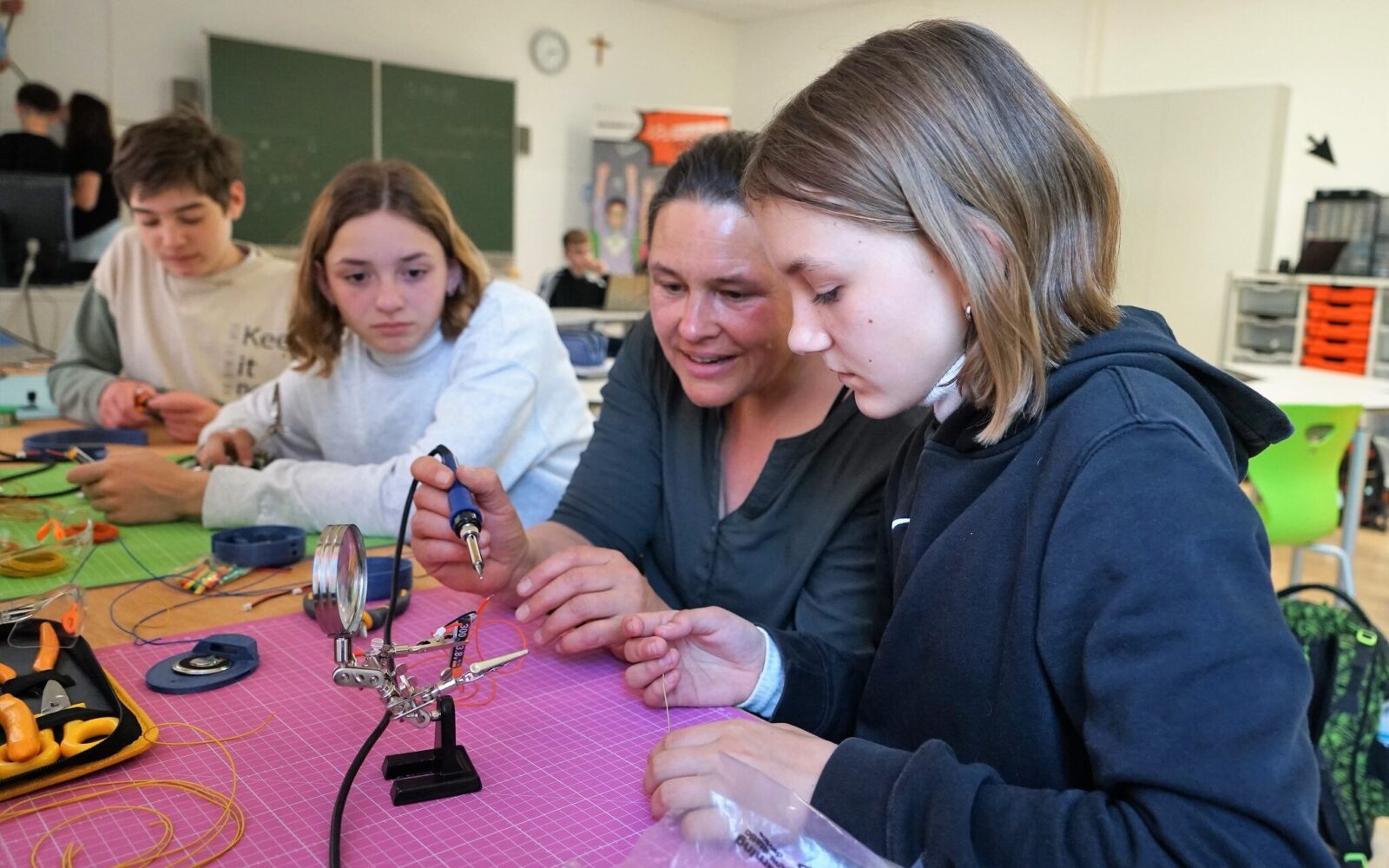
Education and society – two spheres that are currently permeated by a single term: Digitalization. For us, it is more than just the introduction of new technologies – it is inextricably linked to our identity. It is not just about technological progress, but about the widespread acceptance of the digital in our everyday lives. When exactly it entered our lives is unclear, but digitalization is by no means a recent trend. Digital natives, the children of digitalization, have long since outgrown their digital infancy. Their ability to skillfully navigate the virtual world is proof of how early exposure to technology can help them move effortlessly in the ever-changing digital world.
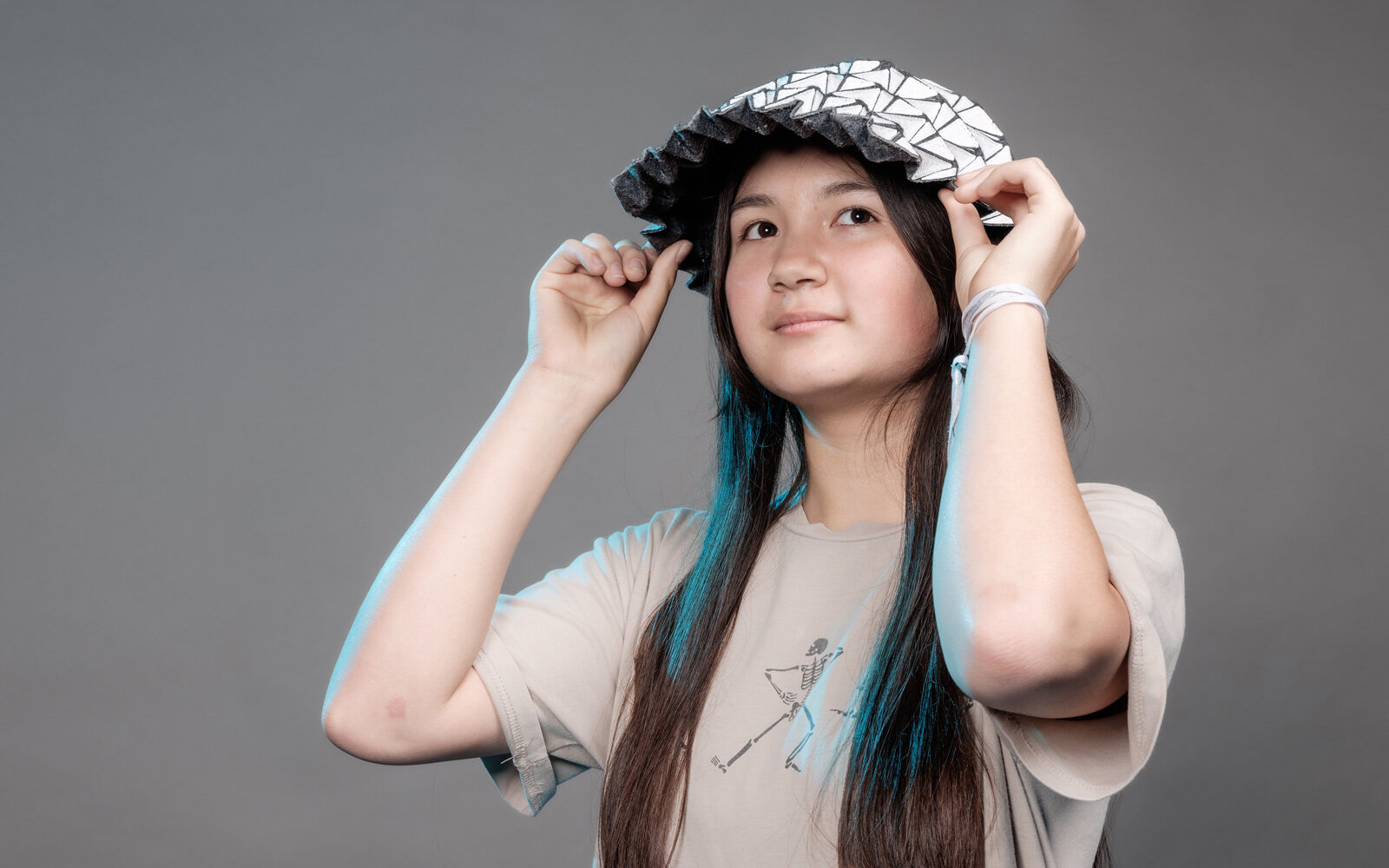
With each other, for each other: Society
The European Prize for Citizen Science is another important component of Ars Electronica that focuses on the concept of society. As a living statement for social and political change in Europe, the prize goes beyond a mere competition and honors outstanding projects that promote an inclusive, pluralistic and sustainable society. This year, the coveted Grand Prize went to the initiative “Isala: Citizen-science map of vaginal microbiome”. The project is the world’s largest citizen science project in women’s health to date, contributing not only to a deeper understanding, but also to an open dialogue about women’s health and the broader importance of citizen science in our society.

While the European Prize for Citizen Science celebrates the dynamics of an inclusive and sustainable society, a moving commemorative event at the Gusen concentration camp memorial site in May 2023 focused on the unforgettable fates of those who suffered under inhumane conditions. Under the title #eachnamematters, a light and sound installation commemorated in particular those prisoners who had to build the camp’s tunnels under cruel circumstances and forced labor. The event focused not only on the historical tragedy, but also on the continuing importance of remembering and respecting the victims.
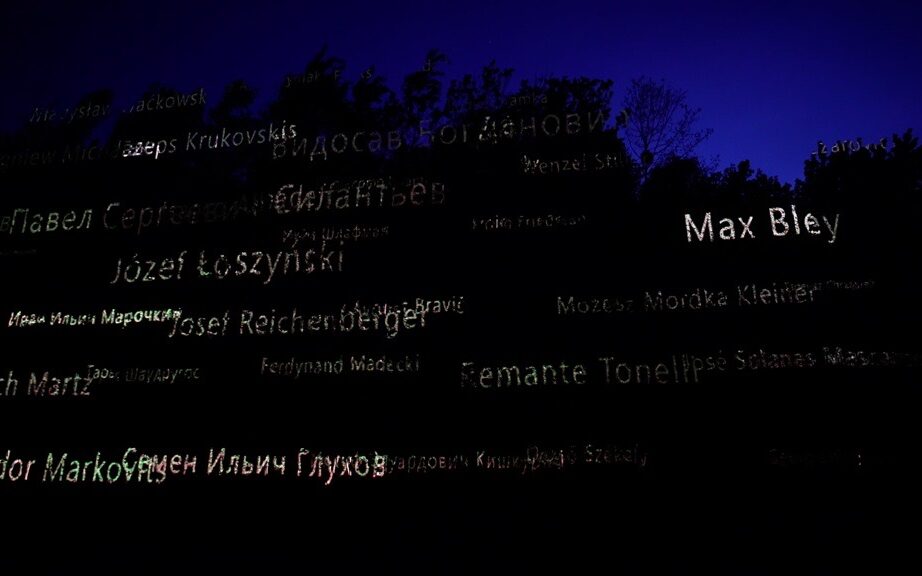
The Ars Electronica Center also focused on an important day for the whole of humanity – Earth Day. This day was not only an opportunity to emphasize our appreciation of our natural environment, but also to encourage us to reflect on our individual consumer behavior. The deeper meaning of Earth Day lies in its call to take action to protect our planet and bring about the changes needed. Under this year’s theme, “Invest in our Planet”, Deep Space 8K opened its doors to provide visitors with various insights into the topic of “Planet Earth”
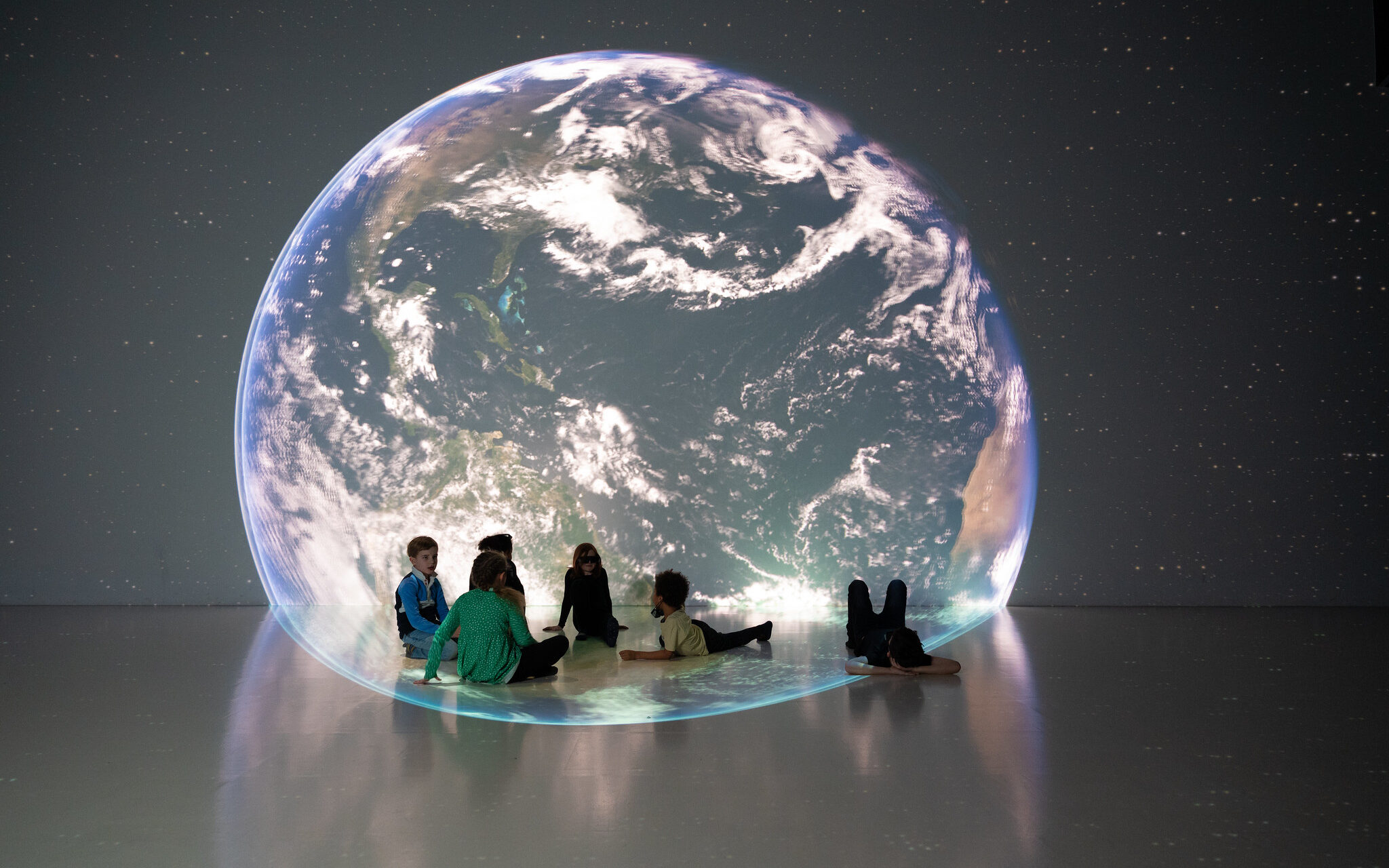
Ars Electronica looks back on an eventful year marked by an intensive exploration of the themes of society and truth. From the festival theme “Who Owns the Truth?” to inspiring projects and the promotion of education and citizen science, Ars Electronica remains a creative endeavor that calls upon us to shape a sustainable society together. In a world of change, we are reminded that the fusion of art, technology and society is not only the path to the future, but also the path to a better world for all of us. We bid farewell to 2023 and look forward to an exciting new year.
